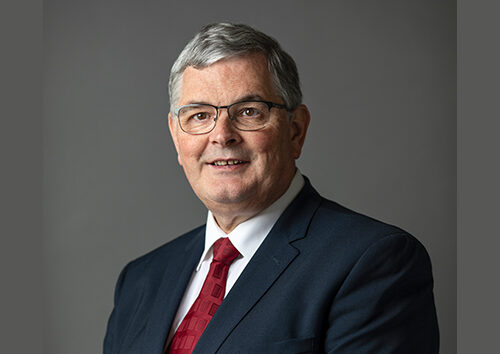8 November 2023 | St. Albans, UK [David Neal]
Armistice Day each year is commemorated on 11 November to mark the end of the war between the Allies of World War I and Germany at Compiègne, France. At the “eleventh hour of the eleventh day of the eleventh month” in 1918 the war was declared over. (1) In the United Kingdom and the Commonwealth, it is known as Remembrance Day or Veterans Day in the United States.
It is estimated that during the 20th century, the total number of deaths caused by or associated with war was 187m. From 1914 onwards, the century continued with very few “periods without organised armed conflict somewhere.” and “dominated by world wars: that is to say, by wars between territorial states or alliances of states.”(2)
The first 22 years of the 21st century recorded different kinds of wars – terrorism, ethnic conflict, and civil wars, with tens of thousands of lives lost each year. (3)
- Second Congo War (1998-2003)
- Syrian Civil War (2011 onwards)
- Darfur Conflict (2003-2008)
- Iraq War (2003-2010)
- Afghanistan War (2001-2016)
- The War Against Boko Haram (2002 onwards)
- Yemini Civil War (2011 onwards)
- Russia – Ukraine War (2014 – 2015)
While a cease-fire was signed in February 2015 between Russia and Ukraine, the war reignited in February 2022, continuing to this day. Most recently, on October 7, Israel declared a ‘state of war’ in response to a terrorist attack by Hamas, killing 1,400 people and the kidnapping of 240 others.
Our response to war and our prayers for those involved are often the result of what we see and hear through the media. An example is the case of Tigray, East Africa. Between 2020 and the end of 2022, due to war in that region of Ethiopia, the lives of 600,000 people have been lost. To understand the enormity of this, the loss is equivalent in a UK context to everyone in the UK cities of either Bristol or Glasgow losing their lives. And we have heard very little! (4)
The Role of Religion
It is a reality that religious belief, past and present, has been at the root of many a war, but as some scholars suggest, such conflicts may not be be “rooted strictly in religion and instead may be a cover for the underlying secular power, ethnic, social, political, and economic reasons for conflict.” (5)
In his book ‘Not in God’s Name’ about confronting religious violence, Jonathan Sacks demolishes the idea of the holy war.
“No soul was ever saved by hate. No truth was ever proved by violence. No redemption was ever brought by a holy war. No religion won the admiration of the world by its capacity to inflict suffering on its enemies. Despite the fact that these things have been endorsed in their time by sincere religious believers, they are a travesty of faith, and until we learn this, religion will remain one of the great threats to the peace of the world.
The crimes of religion have one thing in common. They involve making God in our image instead of letting him remake us in his. The highest truth does not cast its mantle over our lowest instincts – the search for power, the urge for conquest, the use of religious language to spread the aura of sanctity over ignoble crimes. These are forms of imperialism, not faith.” (6)
Peacemaking…
As a faith community, Seventh-day Adventists do not “view any country as a nation of villains, but rather see them as people for whom God’s Son, Jesus Christ died” and are committed to praying for all connected with conflict and war.” As conflicts develop which look helpless to resolve, their wish is to “offer healing and be responsive to those whose lives have been shattered wherever they are… an integral part of our calling.” Where necessary in the context of conflict, Adventists are encouraged to recognise the need for peacemaking, “to take an active role in making and sustaining peace, thus being part of the solution rather than the problem.” (7)
Remembering and Hope
As the 2023 Armistice commemoration approaches, its relevance is amplified by current heart-wrenching conflicts, those that dominate our TV screens and those hidden in remote regions of the world, continuing not just for years but for decades. We remember dedicated military personnel past and present committed to protecting our freedom. We remember families, fathers, mothers, teenage children, infants, and babies whose lives are terrorised, traumatised, disrutped and who exist without hope. We pray and long for better days when war will cease and the day when we will never have a tear in our eye again over the pain of war and death.
In a video created by the Bible Society for the UK Remembrance Sunday commemoration five years ago, they give a reminder that every Allied soldier was given a bible as part of his military kit. Remembering the pain of war, they offer hope with timely and moving words from the bible. Dare we ever hope that one day there will be no more war?
References:
1. Wikipepida, Armistice Day.
2. The Guardian, War and Peace, by Eric Hosbaum, 23 February 20o2.
3. Britannica, 8 Deadliest Wars of the 21st Century, by Michael Ray.
4. The Guardian, Think the war in Ukraine is the world’s deadliest conflict? Think again, 28 December 2022.
5. Wikipedia, Religious War.
6. Not in God’s Name: Confronting Religious Violence, by Jonathan Sacks, Hodder & Stoughton, 2015, p. 265.
7. Principles quoted from the General Conference statement concerning the 2003 War in Iraq.
“Wipe Every Tear” video, courtesy of the Bible Society.
[Photo: Shutterstock]



